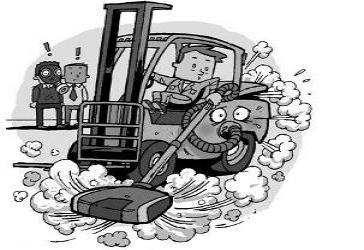
Forklift truck engines naturally pick up dust and dirt from the surroundings and floor – causing poor fuel economy, reduced reliability and high engine wear. What can be done?
You wouldn’t think something as tiny as dust could stop a forklift in its tracks, but it does. Dirty engines get choked up, causing serious issues like:
Engine wear
A clogged engine wears out faster, as millions of tiny particles grind away at the bearings, pistons, cylinders and valves – that means more breakdowns, more downtime and more parts to buy. In fact, some estimates say a clean engine lasts twice as long.
Oil contamination
Dust mixes with oil, and stops it doing its job. Worse, contaminated oil can actually accelerate damage to the engine it’s supposed to protect.
Fuel burning problems
More dust means less air, which affects the engine’s ratio of air to fuel. That makes the engine less fuel efficient, and can also cause harmful emissions.
The cyclone effect
The real problem is, keeping a forklift engine clean is harder than it sounds. Not only do engines take in air as part of the combustion process, but the engine motion itself simply simply sucks dust and dirt from the floor, like a cyclone vacuum cleaner.
What should you do?
To really fix the problem, you need a combination of measures, working together:
1: Look for high air intakes
It may sound obvious, but look for a truck with its air intakes up high – away from the dust on the floor! Of course, this also puts them closer to the driver’s ear level, so they’ll need to include noise reduction measures.
2: Insist on a cyclone air filter
The best trucks now use cyclone technology to clean the air before it’s used. Unlike conventional filters, these don’t become clogged – which can restrict airflow and make the engine inefficient. They’re longer lasting, too, cutting the requirement for servicing.
3: Ask for Belly protection
The only effective way to stop a working forklift engine sucking up dirt from the ground directly is by fitting a belly plate under the truck (this works much better if the rear wheel arches are enclosed too).
As well as dust and dirt, a belly plate protects the engine against larger items – like pallet fragments and stray shrink wrap – which are commonly found at work, and can do serious damage.
